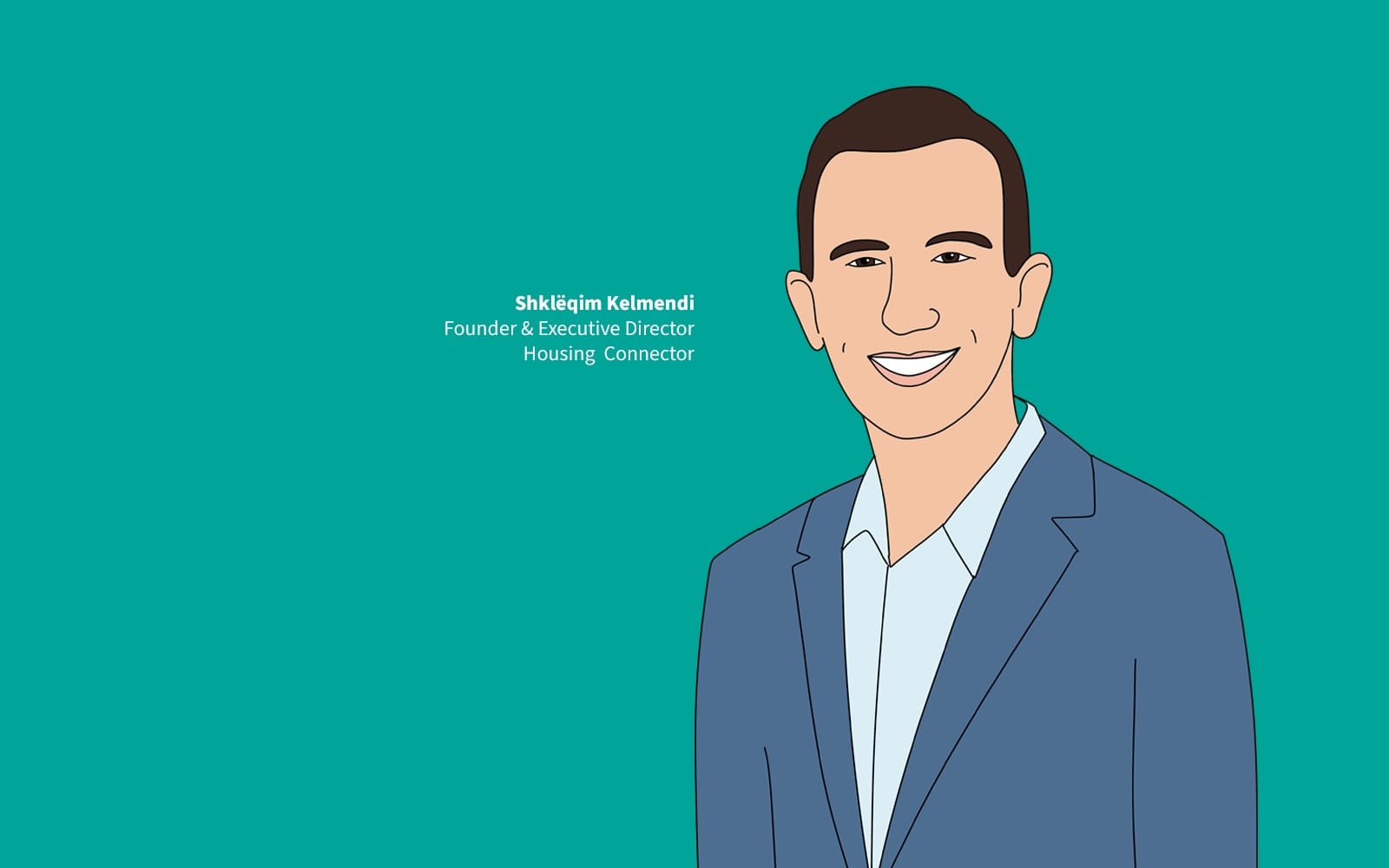Technology
On The Front Lines Of Housing's Affordability Crisis, Resiliency
Powered by Zillow, Housing Connector property owners gain financial safeguards and tenant support. In contrast, residents gain access to homes they’d otherwise be denied due to past income, criminal, or housing issues.

Housing affordability and broader housing access for more American working households are era-defining phenomena we can't get around unless we get through.
They are so daunting that inspiration may need to accompany motivation and resolve for those brave enough to try to overcome what seems impossible.
Success is not final, failure is not fatal: It is the courage to continue that counts.” – Winston Churchill
This maxim resonates profoundly as we navigate the multifaceted housing crisis that grips the nation. Housing affordability isn’t just a fleeting concern; it's a relentless challenge that continues to elude resolution. Yet, within this daunting landscape lie avenues too-seldom traveled: Innovation and transformation spearheaded by blends of private sector commitment, local community partnership, and public sector political will. It’s here, amidst the seemingly insurmountable, that we discover hope and tangible progress.
Securing decent, safe, and affordable housing is becoming the defining struggle of our time for working households in America. Amid surging costs, escalating mortgage rates, and rising monthly expenses, many find the dream of a home slipping through their fingers. As industry leaders and influencers, we can cast a wider net of inclusivity to embrace those left behind by the current economic tide.
In the heart of Seattle, a beacon of such innovation has emerged: Housing Connector. Conceived by Shkelqim Kelmendi, this tech-enabled platform champions the cause of those deemed high-risk by conventional metrics. Its operational model is deceptively simple yet revolutionary: pairing property owners with a segment of society desperate for shelter, thus filling vacancies profitably and equitably.
It epitomizes Nelson Mandela's wisdom.
It always seems impossible until it's done."
Housing Connector’s business model is grounded in collaboration and shared value. With over 4,000 individuals housed and only a handful of evictions, it stands as testament to its efficacy. Property owners gain financial safeguards and tenant support, while residents gain access to homes they’d otherwise be denied due to past income, criminal, or housing issues. With Zillow’s platform, Housing Connector streamlines the process of matching available units with qualified individuals, a paradigm of scalability and sophistication.

Shkelqim’s dialogue with Hannah Gable on the Ivory Innovations House Party podcast sheds light on a critical truth: housing authorities and vouchers, while well-intentioned, often fail at the execution stage. The issue is access.
Housing vouchers usually involve this incredibly long process where folks are put on a waitlist," Shkelqim explains. "They often wait two to three years just to be lucky enough to get this voucher, and it's this golden ticket to housing. The moment that stuck out for me was the excitement and hope in those events when folks would receive their voucher. Then, fast-forward six or seven months, seeing that they still couldn't find anyone who would rent to them was heartbreaking. It was disappointing, and it felt like an opportunity for us to be able to do something to address a critical problem that no one was talking about, which is how do we get these folks that have vouchers, have subsidies to be able to utilize them and find housing, making sure that we're maximizing the resources and investments that are going into solving our housing crisis."
What stands out about Housing Connector is its culture of transparency and empowerment, reflecting Thomas Edison’s philosophy of learning from failure to drive innovation.
When one starts with a blank slate to create something, it’s important to be intentional from the start," says Shkelqim. "To say, ‘Hey, let's not just put the problem we're trying to solve as the primary focus. Let's also focus on solving that problem with a company that values its people. A company that has an ecosystem and a culture that helps folks grow, and supports one another; a company that is healthy and safe for folks. That's something that we were intentional about from the start, and it's something that we continue to fight for every single day in our team as our team grows to maintain that culture.
Every Housing Connector team member is part of the cultural fabric, tasked with upholding an ecosystem that cherishes growth, support, and safety. The aim is to provide housing and foster a community that thrives on the dignity and stability a home affords.
Looking ahead, Housing Connector plans to expand its reach to Portland and an additional market by the end of 2024, aiming to serve 40,000 people by 2027. It’s a scale that mirrors the magnitude of the housing crisis, striving to make a sizable dent in a pervasive issue. This goal aligns with Margaret Mead's conviction that committed citizens change the world, reinforcing that collaboration across sectors can multiply impact.
It comes down to our mission and what our North Star is, which is to try to support as many folks and families as possible in accessing housing," says Shkelqim. "With that as our North Star, the question is how do we impact the most lives – how do we scale to accomplish that? You make sacrifices along the way, perhaps around how personalized certain things feel. For us, it was really important that – when we think about the homelessness crisis and the fact that there are almost 600,000 folks experiencing homelessness any given year and millions more that are experiencing housing instability or one paycheck away from losing their home – the urgency to scale was there for us to be able to deliver a solution. So far, the data has confirmed that it is changing lives and impacting the ways they can access and maintain their home. Yes, it is a trade-off."
To the esteemed minds reading this: The call is clear. We must be the "crazy ones" Steve Jobs described, those who believe they can alter the world, for, in reality, they do. It’s incumbent upon us to forge partnerships, harness technology, and enact policies that create bridges to affordable housing. Housing Connector is not just a case study; it's a call to arms—a demonstration that our combined efforts can culminate in a future where every American has a key to a place they can call home.
The path to affordable housing for all is complex, but it is not impassable. As leaders and innovators in housing, construction, and development, we stand on the precipice of opportunity. By investing in models like Housing Connector, we commit to a future that rewards our courage to continue, our resolve to innovate, and our unwavering belief that we can solve what seems to be unsolvable together.
Beyond sheer resolve, there's always inspiration.
If you can't fly then run, if you can't run then walk, if you can't walk then crawl, but whatever you do you have to keep moving forward." – Martin Luther King, Jr.
MORE IN Technology
How A Broken Furnace Led To An Innovative New Power Solution
With new and emerging Federal and state energy credits that homebuilders and residents can tap into, the system nets out to an expense win on both fronts.
Ground Control: Creating A Digital Marketplace To Move Dirt
A $100 billion-a-year lending pool to acquire and develop the ground for homesites partially supports a parallel universe $50-billion addressable market that begs for a solution to a pain point: moving dirt.
Tapping Linda Mamet As EVP, Tri Pointe's Tech-Fueled Future Accelerates
"We can now focus fully on ideas like a single source of truth. This means holistic integrations among our platforms – where information moves meaningfully in real-time, back-and-forth between what the customer is doing and what we are doing internally." -- Linda Mamet, EVP, Tri Pointe Homes
